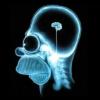Hello!
I've been reading about the involvement of the Kappa Opioid Receptor in Depersonalization, which alas I do have.
I'll skip the drama about how I got it and how much it sucks, and get to the point. If this is still too lengthy, please scroll down to "Help needed".
Concurrently with the DP, I also have brainfog, which seems more like borderline-dementia. This makes it hard (and ironic) for me to study how to fix this, which is why I'm asking for help here. I'll continue looking into it myself, but I figured if anyone has any ideas/pre-existing knowledge here, it would obviously help the process.
Turns out that basically what I want to do is antagonize my KOR's. Considering that Naloxone is highly unsustainable, and Naltrexone is hard to come by and also not exactly favorable, I need to find another way. JDtic, Nor-binaltorphimine, 5'-Guanidinonaltrindole, and TENA are all KOR antagonists, but these are all currently unavailable, let alone their safety information.
One drug in particular that will be available in my country shortly is Nalmefene, which I will try when I can. However, I rather not wait around until that happens. Moreover it's not a specific antagonist, though I suppose I could live with that. Beggars can't be choosers, right?
Current stack:
Currently I'm taking 500mg Levetiracetam BID for my HPPD, which I'll be dropping soon because it has done absolutely nothing for me. I figured for now I should nevermind the visual distortions and focus on alleviating cognitive dysfunction, depersonalization, anxiety and depression.
I also more or less take the following supplements daily: Magnesium Malate (1-2 grams), 4-5ml NOW sublingual B-complex, 5000IU vitamin D3, and Source of Life Gold Multi-Tabs at 6 tablets OD. I use Cannabidiol and Damiana as needed for sleep.
Prospective substances:
Anyhow, I came across the substance Amentoflavone, which is found naturally in St. John's Wort and Ginkgo Biloba, and appears to be a KOR antagonist (also an antagonist at another opioid receptor, but I forgot). So I've ordered top-quality brands of the stuff (Perika SJW, Ginkgold Ginkgo). I've never even tried SJW, so I think it's worth a shot regardless of its amentoflavone content (could help with co-morbid issues). I'd tried some supermarket brand Ginkgo last year, which didn't help, but after reading this thread I decided to give it another shot. Also.. Curcumin. Damn I already forgot how it would be helpful exactly, but it should somehow help. I'll update once I read through it again.
Help needed:
I came across all kinds of terms I'm unfamiliar with, mainly (m)CREB and cAMP. I've read up a bit about (neuro)endocrinology (thank you Sapolsky), yet alas I've forgotten most about that too. Guess I should go through my notes again. In any case; CRF/CRH seems to be involved as well w.r.t. dynorphin production. And along these lines I get overwhelmed, so here is where I ask for help.
Can anyone point me to solid literature about these processes and how they're involved with KOR's and Dynorphin? Specifically CREB and cAMP literature (where do I begin?). Moreover, does anybody know how, via these mechanisms or not, to induce/support the desired effect (as stated in the thread title)? Or really just anything that could help me further this idea and/or your own inputs?
Many thanks in advance!


















































